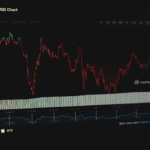The world of digital assets can be exciting, but it’s also important to be smart about how you invest. Just like with any investment strategy, building a winning digital asset portfolio is all about managing risk and maximizing your chances of success. Here, we’ll break down the importance of diversification and some key tips to keep in mind.
Spreading Your Bets: Why Diversification Matters
Imagine putting all your eggs in one basket – that’s essentially what you’d be doing by investing in just one or two digital assets. The digital asset market is inherently volatile, meaning prices can swing dramatically in a short period. If you’ve hitched your wagon to a single asset that takes a tumble, your portfolio could suffer significant losses.
Diversification is the cornerstone of any sound investment strategy. It simply means spreading your investments across a variety of different assets. In the context of digital assets, this could involve:
· Investing in a Range of Cryptocurrencies
Bitcoin might be the most well-known, but there are thousands of other cryptocurrencies out there, each with its own unique features and purposes. Consider researching and including established cryptocurrencies with different functionalities in your portfolio.
· Looking Beyond Crypto
The digital asset landscape extends beyond cryptocurrencies. There are other types of digital assets, like utility tokens that provide access to specific services or security tokens that represent ownership in real-world assets. Including these in your portfolio can further spread your risk.
Building Your Digital Asset Portfolio: Top Tips
Now that we understand the importance of diversification, let’s get practical. Here are some tips to help you build a winning digital asset portfolio:
· Do Your Research
Never invest in something you don’t understand. Take the time to research different digital assets, their underlying technology, and their potential use cases. The more you know, the better equipped you’ll be to make informed decisions.
· Start Small and Scale Gradually
The digital asset market can be fast-paced. As a beginner, it’s wise to start with a smaller investment and gradually increase your exposure as you gain more experience and confidence.
· Consider Dollar-Cost Averaging (DCA)
DCA involves investing a fixed amount of money into a specific asset regularly, regardless of the price. This approach can help you average out the cost per unit over time and potentially reduce the impact of volatility.
· Don’t Invest What You Can’t Afford to Lose
Digital assets are a speculative investment, and there’s always the potential to lose money. Only invest what you’re comfortable losing and avoid putting your financial well-being at risk.
Need Help? We Can Help Build A Winning Digital Asset Portfolio For You!
Keeping up with the rapid changes in the world of cryptocurrencies and digital assets can be overwhelming. At Kenson Investments, our team is dedicated to delivering the most current information, trends, and educational content to help you stay well-informed. We offer valuable insights into real-world assets and the latest developments in the market. Join us today to stay updated and enhance your knowledge of digital assets, enabling you to make informed decisions with confidence.
Disclaimer: The information provided on this page is for educational and informational purposes only and should not be construed as financial advice. Crypto currency assets involve inherent risks, and past performance is not indicative of future results. Always conduct thorough research and consult with a qualified financial advisor before making investment decisions.
“The crypto currency and digital asset space is an emerging asset class that has not yet been regulated by the SEC and US Federal Government. None of the information provided by Kenson LLC should be considered as financial investment advice. Please consult your Registered Financial Advisor for guidance. Kenson LLC does not offer any products regulated by the SEC including, equities, registered securities, ETFs, stocks, bonds, or equivalents”














